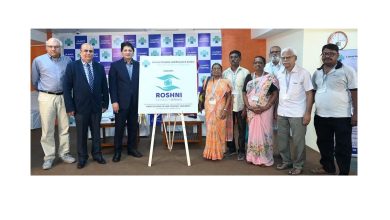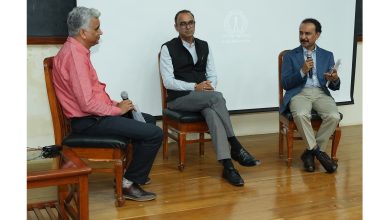
The centre will help in the treatment of movement disorders like dystonia and spasticity
Chennai-based SIMS Hospital (SRM Institutes for Medical Science) has launched BONDS, (BOtulinumToxiN in Dystonia & Spasticity), a first-of-its-kind centre in Chennai with focussed approach to the treatment of movement disorders like dystonia and spasticity (also for stroke rehabilitation) using Botulinum Toxin injection at its Vadapalani facility in Chennai.
The centre was inaugurated by Dr C Vijaya Baskar, Minister for Health & Family Welfare, Government of Tamil Nadu¸ in the presence of Ravi Pachamuthu – SRM Group. The centre is equipped to offer wide spectrum of services to treat patients affected by various movement disorders including stroke, dystonia, spasticity and neuromuscular ailments.
Ravi Pachamoothoo, Chairman, SRM Group, said, “BONDS Clinic marks yet another milestone in this journey and I congratulate Dr Meenakshisundaram and his team for setting-up this centre of excellence, which I am sure, will bring in a significant relief to the people with movement disorders.”
Dr U Meenakshisundaram, the Director of the Neurology Department at SIMS Hospital, who is also the present Secretary of the Movement Disorders Society of India and an Executive Committee member of the Indian Academy of Neurology, said, “Clinical research findings have revealed that over last few years the use of Botulinum toxin has shown great results in the treatment of movement disorders and when combined with a proper physiotherapy regimen, people with these conditions recover faster and return to a near-normal life much quickly. Also, administering Botulinum Toxin Injection is a skilled procedure and is done by skilled set of experienced practitioners, complete with progressive monitoring on the patient’s improvement.”
“The treatment is done as an outpatient procedure and spans between three to six months duration with minimal side effects caused due to the weakening of muscles, which are mostly reversible depending on the patient’s medical condition and their response to the treatment,” Dr Meenakshisundaram added.




